Etymology
“In whatever realm the artist’s discomfort arises, it tears open the fabric of psyche and universe, leaving a hole the creative impulse rushes than to repair…To participate in the creative renewal of the world is as close as we may come to touching the cloth of existence’s original daybreak.”
Jane Hirshfield, Ten Windows, pp.46-47.
repair (verb)
"to mend, put back in order," mid-14c., from Old French reparer "repair, mend" (12c.), from Latin reparare "restore, put back in order," from re- "again" (see re-) + parare "make ready, prepare" (from PIE root *pere- (1) "to produce, procure").
fix (verb)
about 1370 fixen set (one’s eyes or mind) on something …; probably borrowed from Old French fixer, from fixe, fix fixed, from Latin fixus, past participle of figere to fix, fasten.
About 1500 fasten, setlle, assign; 1663 adjust, arrange, put in order;
American English 1737 mend, repair; 1790 tamper (e.g., with a jury)
Chambers Dictionary of Etymology 1988
